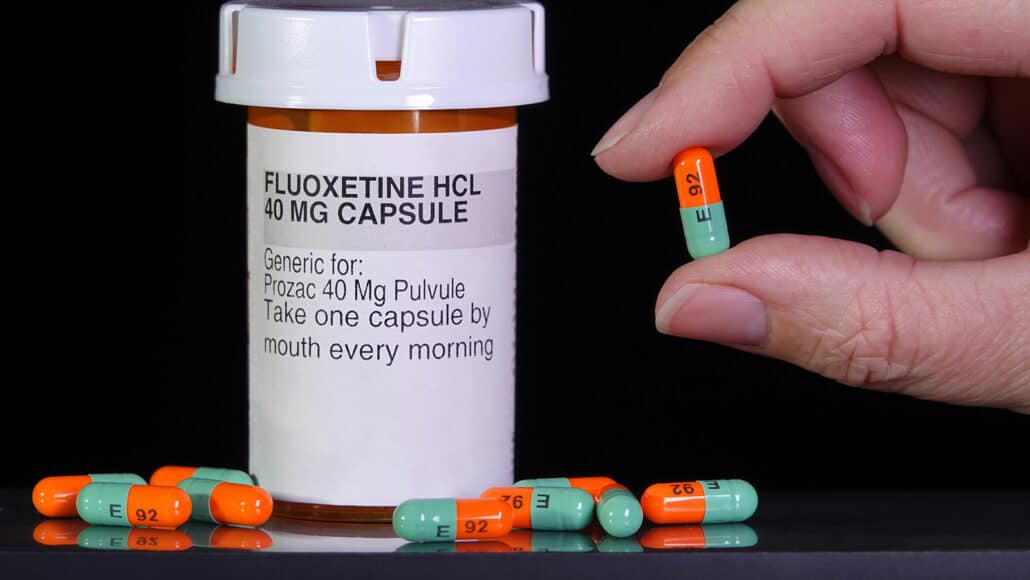Between 2015 and 2018, 13.2% of adults 18 years of age and older reported taking antidepressants the month before. More women than men were taking antidepressants, with 8.4% of male respondents and 17.7% of female respondents stating that they had ingested these medications. More men and women were using antidepressants in the 60 and above age group than in the other age groups, and more college graduates than high school graduates were using these substances. Between 2009 and 2018, antidepressant use increased among women but not men.

Prozac is prescribed to treat depression more than any other antidepressant, but many people are abusing this substance. Rather than use it to treat their depression, they are taking it to help them cope with other problems, and some people are even using it as a weight loss supplement. The 2017 National Survey on Drug Use and Health found that 281,000 adults, 52,000 young adults, and 19,000 adolescents were abusing antidepressants like Prozac.
Table of Contents
What is Fluoxetine or Prozac?
Fluoxetine is an antidepressant in the class of selective serotonin reuptake inhibitors or SSRIs. It is more commonly known as “Prozac.” This medication targets the brain chemical called “serotonin,” and it increases the brain’s activity. When the brain’s levels of serotonin are low, it is responsible for creating the depression, obsessive-compulsive, anxiety, and panic symptoms that some people experience. After taking Prozac, the brain receives a surge of serotonin, and at the same time, the Prozac prevents the serotonin from being taken back by the neurotransmitters that released it. This increases the amount of serotonin within the brain so that your brain chemistry becomes balanced and your mood improves in the process.
Prozac is only available by prescription, so you can only obtain Prozac after you visit your physician. This drug comes as a tablet, syrup, or capsule and is often prescribed with other medications to treat the symptoms of depression or bipolar disorder. Prozac causes people to feel better, but it also relieves insomnia and causes you to have more energy. It also reduces the need to perform the behaviors associated with the compulsive-obsessive disorder and relieves anxiety.
How is Prozac Used?
People must take Prozac exactly the way in which their doctors prescribe it. This means that they must not take a larger dose than their doctors have prescribed, they must not take additional doses of this medication, and they must not take this medication for a longer period of time than their doctors advise. Physicians prescribe Prozac in doses of 10 milligrams to 80 milligrams. A prescription to treat the symptoms of depression usually begins at the lowest dose of 10 or 20 milligrams. If the physician deems it necessary, the dose can be increased after that. It takes between one and two weeks for the person to begin to notice a difference in his or her symptoms, but sometimes, it can take as long as one month. When prescribed Prozac, you must continue to take the medication even after you are feeling better.
The Food and Drug Administration or the FDA also approved Prozac for the treatment of the premenstrual dysphoric disorder, bulimia nervosa, obsessive-compulsive disorders, panic disorder, and major depressive disorder. Off-label uses include neurocardiogenic syncope, fibromyalgia, diabetic neuropathy, migraine headaches, and generalized anxiety disorder.

Side Effects of Prozac
The common side effects that Prozac causes some people to experience include the following:
- Abnormal dreams
- Sexual dysfunction
- Impotence
- Tremor
- Fatigue
- Drowsiness
- Insomnia
- Weight loss or weight gain
- Increased sweating
- Anxiety and agitation
- Restlessness
- Nervousness
- Diarrhea
- Headache
- Nausea
- Dry mouth
Prozac may also cause serious side effects. If you or a loved one are experiencing the following, you must inform your physician immediately:
- Significant weight loss
- Seizures
- Angle-closure glaucoma
- Instigation of mania or hypomania
- Serotonin syndrome
- Suicidal tendencies
- Allergic reactions
- Abnormal bleeding
- Impaired motor skills, thinking, and judgment
- Abnormal heartbeat
Prozac Addiction
You can rest assured that Prozac is not addictive in the same way that cocaine is addictive. For example, fluoxetine does not ordinarily cause people to crave the medication or encourage them to perform the drug-seeking behaviors of those addicted to cocaine and other substances. It is a different story when someone has been taking Prozac for a longer period of time than it was prescribed. In this case, people do become dependent on Prozac, and it leads to withdrawal symptoms when the person suddenly stops ingesting the medication.
Withdrawal Symptoms
Withdrawal symptoms include the following:
- Flu-like symptoms
- Insomnia and nightmares
- Tremors
- Aggression, irritability, agitation, and anxiety
- Vomiting and nausea
- Confusion
- Headache
- Dizziness

Psychological Dependence
You are psychologically dependent upon a substance when you need to take regular doses of the medication in order to function normally. That is the very important reason that you must only take Prozac as it was prescribed by your physician. If you stop taking it for any reason, you may experience the withdrawal symptoms that were listed above.
An addiction to Prozac causes you to experience emotional issues that make you feel uncomfortable. For example, after taking antidepressants for several years, your body loses its ability to regulate its serotonin levels, and it causes you to experience panic, suicidal thoughts, anxiety, and profound depression. You were prescribed Prozac to relieve these issues.
If you stop taking your regular dose of Prozac, you could also begin to experience “rebound symptoms,” or the symptoms that your doctor prescribed Prozac to relieve. Rather than ceasing all use of Prozac, the medical community advises that you taper off of the substance and get further treatment after you are finished. This means that you will take smaller and smaller doses of the medication until you can stop entirely without experiencing any withdrawal symptoms.
The Prozac Withdrawal Timeline
The timeline for withdrawal is different for everyone, but the time it takes to complete the timeline depends on the amount of Prozac you are taking. If you were taking larger doses than your physician prescribed, you are very likely to experience the withdrawal symptoms listed above, and it is also likely that these symptoms will be extremely severe. It’s not possible for anyone to say when you will begin to experience withdrawal symptoms, but sometimes, they start right away after ceasing to ingest the medication. Other people have reported that they did not start to experience these symptoms until after two weeks or more had passed.
Treatment
The beginning of treatment will begin with the detoxification process. This is when all traces of the drug will be removed from your system. Although you can go through the detoxification process outside of a treatment center, the safest place for you to do it is in rehab. The medical staff will be there to ensure that you are as comfortable as you can possibly be, so they will manage any withdrawal symptoms that you or your loved one experience. The other reason that the best place for someone with a dependence on Prozac is a treatment center is that treatment doesn’t end with the detoxification process. To ensure that you remain abstinent for the long term, it is also necessary to obtain treatment with behavioral therapies.
Treatment After the Detoxification Process

Inpatient Rehab Treatment Programs
The inpatient treatment program is one in which you live at the facility while you obtain treatment for your Prozac dependence. This provides you with the intense structure that you may need. In this program, you will be required to adhere to a daily schedule. Each day, you will attend meetings and counseling sessions, and you will also be entreated to spend time with your peers in exercise groups and at meal times. You will receive individual sessions with your own therapist and group counseling sessions with your peers, and your family members will be welcome to join you for family therapy.
Outpatient Rehab Treatment Programs
Outpatient treatment may be a possibility for you or your loved one if your dependence is not severe and hasn’t been going on for a very long time. You won’t have to live at the facility, but you will attend daily sessions of the same type of treatment that was described above. You may also receive homework that you will need to complete when you are outside of the facility. In order to participate in this program, you must not need medical or clinical care services. If you do, the inpatient program can provide these for you.
Aftercare
After you leave your rehabilitation program, you must continue your treatment. This includes continued treatment for your dependence on Prozac, but it also includes treatment for your depression and other psychological symptoms. Examples of aftercare programs include the 12-step program.
If you are looking for a treatment program for your loved one, contact Long Island Interventions. We can provide you with additional information on where you can obtain treatment for yourself or your loved one. We do not offer treatment for addiction, but we do offer other types of services. If we do not have the exact services that you need, we can refer you to our trusted affiliate providers.
Please contact Long Island Interventions for information about Prozac Addiction Treatment near you.
FAQ
What happens if you suddenly stop taking Prozac?

